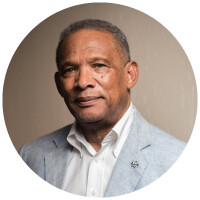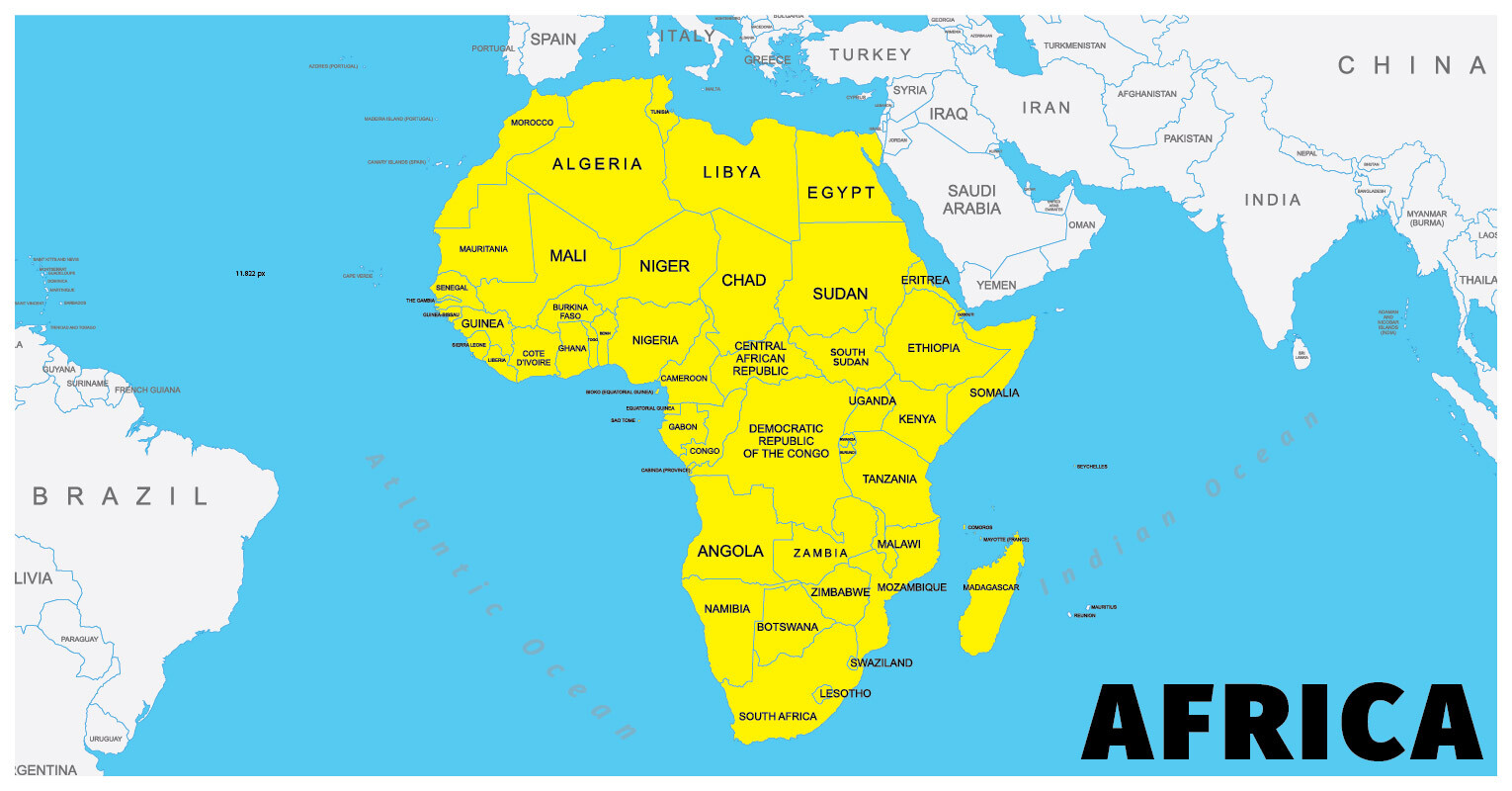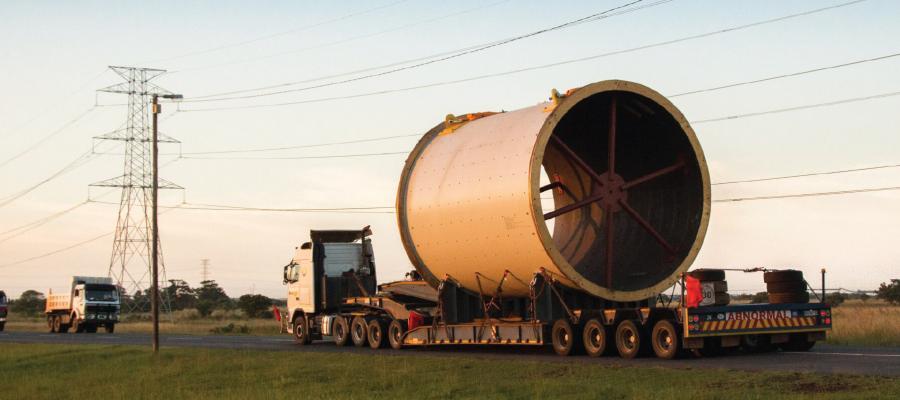Interview with
Mr. Basil L.S. Pietersen
Executive Director

First of all, could you elaborate a bit on the history of Afrilog, its ownership, and your main line of business currently?
One cannot talk about Afrilog without making reference to the parent company, namely CSTT Afrique De L’Quest, commonly known as CSTT-AO. What started out as a Senegalese customs clearing business in 1949 has, under the leadership of its Chairman and Owner, Mr Mamadou Lamine Gueye, developed into what is today referred to as a supply chain business. That said, I must hasten to mention that a number of legal entities emerged from within CSTT AO while some were acquired.

The need to establish business across borders necessitated the need for a “universal /African” name which would be accepted across the African Continent. Afrilog was therefore born in the year 2000. Shortly thereafter, Afrilog South Africa was registered. Again, this was as a result of the demands and challenges placed upon the company by both our clients and the marketplace. The main reason for the establishment of Afrilog SA was to fulfil the Supply Chain Management requirements for our clients and by so doing, streamlining operations and reducing inventory cost while simultaneously improving service levels. The many years of operational experience across the “Group” companies enabled Afrilog to design supply chains. As a Group, our vision is to build long-term, sustainable supply chain solutions, incorporating ongoing improvements.
Today, the term “Supply Chain” is commonly used in our industry, but there are only a few companies who can actually claim to offer such a holistic solution. Afrilog’s offering starts with sourcing and procurement, and covers all freight forwarding, customs clearance, transport, warehousing, and delivery to the final destination… irrespective of the mode of transport.
Africa is a huge continent, and I suppose no one can cover it all. In your opinion, which countries besides South Africa can you handle from a logistics point of view? Do you have offices elsewhere on the continent, and/or do you work with local agents/partners where you don’t have your own branch?
You are correct. The continent of Africa is huge with the total number of countries totalling 53, including the Indian Ocean Islands. In southern Africa, we have offices in Namibia, Mozambique, the Democratic Republic of Congo, and Mauritius. In countries such as Kenya, Tanzania and Zambia, we have long-established relationships, and we, for the moment, have no intention of establishing our own offices in these countries. With our parent company situated in Senegal, it stands to reason that our West African footprint is strong and wide. We have our own offices in Mali, Ivory Coast, Guinee, Burkina Faso, Ghana, and Sierra Leone. Again in countries such as Nigeria, Liberia, Benin, Togo, Niger, and Mauritania, we have excellent partnerships with reputable like-minded logistic and freight forwarding companies.
It is a well-know fact that without an established network on the African Continent, it would almost be impossible to deliver a professional service. That said, we are able to meet the needs of our clients across the continent. We have successfully completed work in countries other than those mentioned. These include Ethiopia, Cameroun, Equatorial Guinea, Uganda, Sudan, and we can also include Saudi Arabia and Jeddah to be exact.
In the main, we handle and manage exports from South Africa and elsewhere in the world directly to African destinations. Being responsible for the strategic sourcing and procurement allows us to dictate the purchase terms, and in this way, we control the entire movement of the cargo by sea, land, and air, utilizing the most cost-effective means of transport, including both air and sea charters.
Do you have experience handling project and oversized cargoes? Could you provide us with a few examples?
Within the group structure resides a legal entity, namely Multimodal Logistics Solutions (Pty) Ltd., trading as Multilog Solutions. Multilog is known as a projects logistics company. That said, we have within the Group secured the services of skilled project managers who have over the years delivered abnormal and out of gauge cargo from South Africa and globally to challenging destinations on the African Continent. Specializing in the mining industry, we would be responsible for the movement of cargo from the exploration to the construction stage, and finally when the mine has been constructed, we take management of what is known as the supply stage.
The construction phase is where we move complete Bore Mills weighing from 90 tons to 180 tons, measuring up to 12 meters in length and 6 meters in diameter. The movement of every piece of equipment needed for the construction of a mine is handle and managed by the Group – some include, Girth Gears, Transformers, Cranes and counterweights, Wire Screens (diameters of 4 to 6 m), Crushers and ship loads of steel pipes in lengths of between 12-15 meters.
We are also involved in the construction industry, and here we move various items, pylons, concrete beams, structured steel of all shapes and sizes, diesel generation plants, etc., not forgetting the beverage industry where we have moved complete bottling washers/plants on the continent, construction vehicles of all sizes as well as busses.
I have been approached by many people who claim to be “Africa experts”. What is your view on that? Does anyone hold all the answers? Is the continent operating differently from a logistics standpoint? Is there any EU style alignment in the movement of goods and services coming up? Are there initiatives on the way to make the world’s biggest free trade zone? Please tell our readers what is happening in Africa if possible.
As previously stated, the African continent is huge with more than 50 countries all emerging and being at different stages of development. It can almost be confirmed that the unique challenge in moving cargo on the continent is infrastructure. That being said, I must hasten to state that much is being done to rectify the situation. However, it is going to take many more years before we will get to an acceptable situation. Development includes not only road infrastructure, but also new sea ports are being constructed, and more and more we have seen the creation of new airports. All this augers well for the future of the continent.
Much attention is needed in terms of border crossings. Bureaucracy is what hampers the flow of cargo across borders, especially to the so-called landlocked countries. We have seen a number of initiatives emerging, and yes, it must be acknowledged that some have been in the making for years without much in the form of positive results, but the example recently seen in East Africa is definitely a positive one.
Today, a total of 20 odd countries, in the main from East and Central Africa, have embarked on an exercise to ease the movement of goods and people across borders. Obviously, this is the first set, and secondly, there is the question of documentation for imports and/or export. To achieve the first, they must seek uniformity in the documentation. This, I might add, is well-documented, and a number of countries have signed the necessary approvals – obviously pending certain approvals from the authorities. COMESA and other Agencies within the African Union are hard at work in this regard.
While we cannot talk about an EU style alignment today, we can however state that given the time, it will be a reality.
As for the so-called “African experts”, all I can say is that I have not met a company who on its own can claim to be experts. Afrilog, though being truly African with only African share-holders, and understanding the challenges of the environment as we are based and operating out of Africa is possibly the closest you will get to being truly African.
When did you start your own career in logistics, and what made you choose this career path?
This is a question which has been asked so many times and to be truthful, I must admit that it was definitely not by design but rather by chance. The story of how this happened is a rather lengthy one. Safe to say that it happened 50 years ago. No doubt the story is the same from both those who have retired and those still active: once you enter the Freight Forwarding and or Logistics Industry, you never leave. Needless to say, it did not take long for me to realize that the freight forwarding industry is where I belong.
It started with an old English man who had a vision to establish the first freight forwarding management company. We managed all facets of importers and exporters shipping departments. From a two-man business, within a short period, we had a head count of 30 plus people. After eight years, he retired, and a few of us (employees) took over the business. Soon, the other two partners sold out to one of the then biggest logistics companies. I now had a new boss.
After a few years of me successfully managing the business, the majority shareholder decided that it had bigger things for me to do. I’ve spent more years than I can count managing various departments and businesses within the Group, also holding many directorships.
Life has taught us that nothing lasts forever. The business was bought out, and again, I had a new boss who really did not understand the business. It was not long before I decided to move on. That did not last long. I soon found the bureaucracy too much and decided it was time to do my own thing, so to speak. With a colleague and the Senegalese partners, we started Multilog and Afrilog in South Africa. The rest is history.
My career has taken many wonderful turns. Here’s one of them: for the past 14 years, I’ve chaired the South African Association of Freight Forwarders, known as SAAFF and became FIATA President in 2019.
In dealing with logistics into South Africa and beyond, what rule of thumb would you say works?
As mentioned previously, countries on the continent are all in different stages of development. This means each requires a different approach in doing business. It is definitely not a case of “one size fits all.” And unless there is an appreciation for these unwritten rules, one will not succeed. The advice to all new entrants is “do your homework first and respect the rules, the people, and the country in which you find yourself.”
South Africa, on the other hand, unlike the rest of the continent, is more developed and enjoys a first world infrastructure with operations for the movement of cargo, both imports and exports. Let us not forget that South African is still used as a gateway to its northern neighbours. The South African Customs Clearing procedures are well-developed and are continually being improved to international standards.
How efficient are the customs authorities for both shipments in/out of South Africa but also beyond?
Continually, regulations and systems are improved to meet international standards and World Customs Organization rules and procedures. SAAFF, acting on behalf of the industry in South Africa has a strong relationship with the South African Revenue Service (SARS), giving SAAFF the ability to negotiate and influence decisions which will benefit the freight forwarding community, their customers (the importers and exporters) and ultimately you, the consumer. The efficiency is derived from the inclusion of all stakeholders in the supply chain to meet regularly with the view to robustly debate and negotiate with the law makers. This is encouraged, and the results are evident. The challenge though is the ability to maintain such relationships.
South Africa is known for beauty and once when COVID-19 has been eradicated, where would you recommend would be visitors to visit. Can you recommend some lesser-known spots that are worthwhile visiting?
South Africa is a vast country with great beauty no matter where you find yourself. Obviously, you chose to go to places which will cater to your interest, and this is what makes South Africa unique. Whatever your fancy, your needs can be met.
There are the game parks which are always the number one attraction when planning a trip to SA. Talking about the game parks, these too can differ considerably and caters to all needs – from the extremely luxurious to “regular” luxurious to first class, etc.
Also consider which area or part of the country you wish to visit. More importantly, how much time do you have to spend in the country? Is your thing the beaches or the city lights, the mountains or the Bushveld? Then, there is your preference of climate conditions. You can have the tropics, the cooler mountains, the breezy beaches or those areas which remain hot throughout the year.
Not forgetting the history of the country – would you be interested in the Zulu and/or Boer wars or the more recent uprising of people during Apartheid rule?
Oh, I almost forgot – would you be interested in whale and or dolphin watching, and there are also places for surfers, hikers and/or mountaineers.
If people would like to get in touch with you, how is it best for them to do that?
I prefer contact through email: basil.pietersen@afrilog.com










